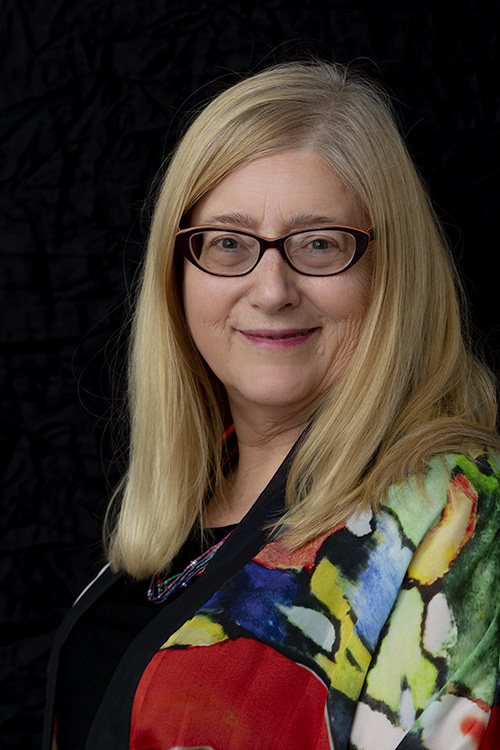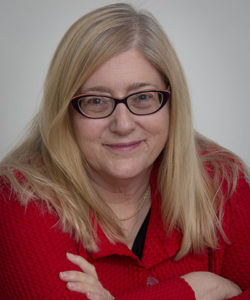Dare to Dream Madam Vice President
We live in history every day, and some days that truth is crystal clear. As I write this it has just been announced that Kamala Devi Harris, a 56-year-old woman of African American and Indian American ancestry, is Vice President-Elect of the United States. She will be the first woman, the first African American, and the first person of Southeast Asian descent to hold that office. I cannot think of a better way to celebrate than by learning more about this outstanding woman, beginning with her history and her parents. Reading about her life is an inspiration, both for young girls and for women at – or beyond – mid-life.
Kamala Harris has accomplished so much that that this summary does not begin to tell the whole story, and, of course, the story itself is far from finished. At each stage in her remarkable career she has fought for the rule of law and for the rights of the people. And as she has fought the good fight, she has ascended through successive layers of power and influence and is now poised to make history.
As mothers and grandmothers – the storytellers for future generations – we can celebrate that women are, at last, being seen as the capable and competent leaders that we are. During the presidential campaign, I posted a blog about women leaders in science and in public life, including Kamala Harris and the winners of several Nobel prizes this year. All of them are remarkable women, and all of them represent the tip of the iceberg, examples of the leadership shown by women all over the country and the world, of all ages, ethnicities, abilities, and all political persuasions. Every one of us deserves to be recognized. And for now, today, let us begin by recognizing this one amazing woman who is a beacon for women and girls everywhere.
Harris’ story begins with the unlikely meeting of her parents, two immigrants from opposite corners of the earth, in Berkeley, California. The University of California Berkeley campus was a hub of progressive politics in the 1960s. Descendants of sharecroppers and of enslaved people from the American South attended the university side by side with trade union progressives. One evening in the Fall of 1962, Donald Harris, a student from Jamaica, stood before a group of Black students to talk about growing up as part of a Black elite in Jamaica. He explained that this elite was useful to British colonials as a foil, to mask the social inequality experienced by the vast majority of people of color in the country. After his talk, a woman in a sari came up to speak with him. Like Harris, Shyamala Gopalan had grown up in a well-to-do family in a former British colony. As a woman in her native country of India, Gopalan could only pursue her interest in chemistry through a degree in home science. Determined to learn more, she secretly applied for a biochemistry degree program at UC Berkeley and was accepted.
Both Harris and Gopalan connected with a campus study group that became known as the Afro American Association. As a young couple, they were confident, articulate, and very much in love. Shyamala Gopalan had always thought she would return to India with her degree, but instead, she and Donald Harris married and started a family in Berkeley. Kamala was their firstborn, and she remembers attending political protests as a child, surrounded by a sea of legs.
While Donald Harris pursued his career through professorships in several states, Shyamala Gopalan stayed in Oakland and Berkeley with her daughters. The young mother was determined that Kamala and her younger sister Maya would learn of their African American heritage in addition to their Indian heritage. The girls attended an African American church in Oakland and their mother took them to a Hindu temple. While Shyamala worked long hours in the lab as a cancer researcher, the young girls were enfolded in a loving community of African American neighbors, including Regina Shelton, who ran a day care center in Berkeley. Shyamala and her daughters moved into an apartment upstairs from the day care center and the girls truly were raised by a village. When she became a United States Senator, Kamala Harris was sworn in on Regina Shelton’s Bible.
In kindergarten, Kamala Harris was bused to Thousand Oaks Elementary in the upscale Berkeley Hills. Under the Berkeley desegregation plan, the school went from 95% white to 40% African American. After her parents’ divorce, Kamala visited her father in Palo Alto (by then Donald Harris was a professor at Stanford), where neighborhood children were not allowed to play with her because she was Black. Think of this: the parents of those children denied their offspring the chance to make friends with a future Vice President of the United States.
Kamala attended high school in Quebec, where her mother had accepted a university research position. She then attended Howard University, a historically Black college in Washington, D.C. While there, she interned for Senator Alan Cranston. Harris came back to California to attend Hastings College of the Law in San Francisco, where she was president of the Black Law Students Association.
After graduation, Harris accepted a position as Deputy District Attorney in Alameda County (which includes Berkeley and Oakland). In 1998 she became an Assistant District Attorney in San Francisco, where she campaigned against a proposition that would have allowed prosecutors to try juveniles in Superior Court rather than juvenile court. In 2002 she ran against her boss and won, becoming the first person of color elected as District Attorney in San Francisco. She pledged to prosecute three-strike offenders only for violent felonies, and not to accept plea bargains in domestic violence cases. Under Harris, San Francisco had a policy of not pursuing jail time for marijuana possession. She also instituted a Hate Crimes Unit focused on crimes against LGBT children and teens. In addition, Harris created the San Francisco Reentry Division to help first-time offenders rejoin society by supporting their education and employment. In all these efforts, Kamala Harris was a compassionate leader who tempered justice with mercy.
In 2010 Harris successfully ran for California State Attorney General, and in January 2011 was the first woman, the first African American, and the first South Asian American to hold that office. In that position, she fought for families being foreclosed upon by major banks. She also investigated a California utility regulator, Michael Peevey, and showed that he had met with a Southern California Edison executive at a secret gathering in Poland and negotiated a settlement for the closure of the San Onofre nuclear power plant that left Californians with a $3.3 billion cleanup bill.
As Attorney General, Harris also declined to defend Proposition 8, which was passed by California voters in 2008 and declared that marriage was only between a woman and a man. Instead she filed an amicus brief alongside those seeking to have the law declared unconstitutional. The Ninth Circuit subsequently lifted the ban on gay marriage.
In 2015, Harris instituted police training in the state designed to help officers overcome implicit bias. She investigated excessive use of force in Bakersfield and in Kern County.
Harris was also active in pursuing gang members who crossed the border from Mexico. In 2014 she joined a group of state attorneys general to meet with prosecutors in Mexico to coordinate efforts.
When United States Senator Barbara Boxer announced her retirement in 2016, Harris captured over sixty percent of the vote to replace her. As Senator, Kamala Harris has vigorously questioned the administration’s policies and appointees, including Homeland Security Secretary Kirstjen Nielsen. After visiting a child detention center near San Diego, Harris was the first United States Senator to call for Nielsen’s resignation. Before the impeachment trial of President Trump, Harris declared on the Senate floor that no one, including a sitting president, is above the law.
Joseph Biden announced his choice of Kamala Harris as his running mate on August 11, 2020. And on November 7, 2020, Kamala Harris becomes the first woman, the first African American, and the first person of Southeast Asian descent to be elected to that office. After a lifetime of firsts, Kamala Harris tells us, “the important thing is that you won’t be the last.”
Dare to Dream Madam Vice President
I began to write this when the election was just decided, on the morning of November 7. As I finish writing, Kamala Harris has given her acceptance speech as Vice President-elect. And that speech, inspiring as it is, becomes even more so when we know something of Kamala’s history. When we know that Shyamala Gopalan Harris struggled to raise Kamala and Maya as a single mother and passed away long before this night, when we know that Kamala was raised by a tight knit community of strong women, it deepens our understanding of the Vice President Elect’s words about her mother:
When she came here from India at the age of 19, maybe she didn’t quite imagine this moment. But she believed so deeply in an America where a moment like this is possible.
So, I’m thinking about her and about the generations of women — Black Women. Asian, White, Latina, and Native American women throughout our nation’s history who have paved the way for this moment tonight.
Women who fought and sacrificed so much for equality, liberty, and justice for all, including the Black women, who are too often overlooked, but so often prove that they are the backbone of our democracy.
All the women who worked to secure and protect the right to vote for over a century: 100 years ago with the 19th Amendment, 55 years ago with the Voting Rights Act, and now, in 2020, with a new generation of women in our country who cast their ballots and continued the fight for their fundamental right to vote and be heard. Tonight, I reflect on their struggle, their determination and the strength of their vision — to see what can be unburdened by what has been — I stand on their shoulders.
And when we read about how many times Kamala Harris has been the first woman to climb a mountain, and then to climb an even higher mountain, it adds depth to her words last night:
While I may be the first woman in this office, I won’t be the last.
Kamala Harris does not want to be a single star alone in the firmament. She wants to bring all of us to our best selves. She reminds all of us of what is possible for each of us.
Because every little girl watching tonight sees that this is a country of possibilities.
And to the children of our country, regardless of your gender, our country has sent you a clear message: Dream with ambition, lead with conviction, and see yourself in a way that others might not see you, simply because they’ve never seen it before.
And we will applaud you every step of the way.
Our country has been divided, not just these past four years, but since its inception. It has been divided by the belief in a zero-sum game: that whatever gains are made by women, or people of color, or people with disabilities, or people who love the same gender, that those gains are made at the expense of someone else. That one person’s ability to marry somehow threatens another person’s marriage. That one person’s access to education somehow limits another person’s ability to learn. None of this is real. We share one nation and one planet. We are all fighting the same pandemic. And despite the challenges we share as women, we sometimes see this zero-sum attitude among women as well, when we divide ourselves into camps according to age or religion or any of a dozen other factors. We are so much stronger together, and that is the call we heard last night from Kamala Harris.
Dare to Dream Madam Vice President
Now is when the real work begins.
The hard work. The necessary work. The good work. The essential work to save lives and beat this pandemic. To rebuild our economy so it works for working people.
To root out systemic racism in our justice system and society.
To combat the climate crisis.
To unite our country and heal the soul of our nation.
The road ahead will not be easy.
But America is ready.
Kamala Harris is ready too. She has prepared for this moment through a lifetime of trials and triumphs. She is a strong and powerful woman in her fifties who challenges us to be brave, to come together, to fight for what matters, to be just and to be merciful. Let us join her.


